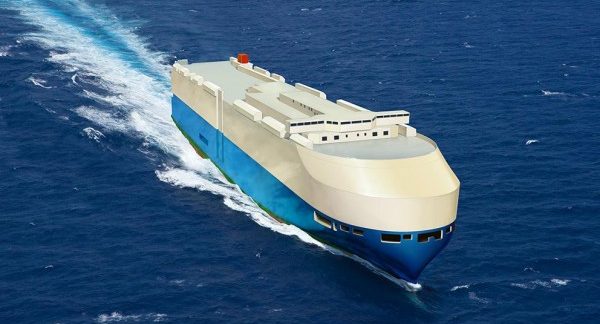Each quarter, the Liquefied National Gas Carrier National Center of Expertise holds webinars to train Coast Guard vessel inspectors, facility examiners, pollution responders, security personnel and planners across the country who are or will soon be involved in the liquefied gas industry.
Routinely, the LGC NCOE works with the private sector and industry representatives to effectively train Coast Guard personnel on the newest technologies.
The most recent session, held Tuesday, was presented by Capt. Nitin Nayyar of Mitsui O.S.K. Lines (MOL). MOL is a global leader in liquefied gas shipping ocean shipping with more than 130 years of shipping experience. MOL has one of the world’s largest fleets of liquefied natural gas (LNG) carriers and plays a leading role in a wide range of LNG projects worldwide.
Nayyar, an Unlimited Master Mariner, has spent a career serving on Chemical and Gas Carriers throughout the world. Nayyar is currently the vice president LNG Operations & Business development at Mitsui O.S.K. Lines (MOL) North America. He has helped developed and gained both IMO and USCG approval for gas carrier curriculums and LNG simulators. He is a Cat 1 OCIMF Gas and Chemical Inspector, holds a PMI Project Management Professional certification, and is a member of the INTERTANKO vetting panel and STS steering committee.
Nayyar gave a Master’s Perspective on how to operate the cargo instrumentation such as fixed gas detection, portable gas detection, temperature & pressure alarms/sensors, level indicators, and overflow control equipment that is installed on liquefied gas carriers. His perspective of this highly complex equipment helped the current and future Coast Guard liquefied gas inspectors’ understand the importance of this equipment.
Following Nayyar’s presentation, the LGC NCOE’s National Technical Advisor Lt. Cmdr. Dallas Smith gave a comprehensive presentation focused on inspection procedures of those cargo instrumentation systems. His detailed explanation of each system and step-by-step process of how to test this equipment, gave a clearer understanding to the Coast Guard inspectors of how to test the systems while conducting examinations on liquefied gas carriers. This type of training is critical to the Coast Guard in order to keep up with the growing and extremely technical liquefied gas industry.
“I’d like to thank Capt. Nayyar and MOL for providing today’s comprehensive cargo instrumentation training to over 100 Coast Guard members throughout the country,” said Cmdr. Jason Smith during his closing comments of the webinar.
“These partnerships that the Coast Guard have with the maritime industry, like with MOL, are essential to helping the Coast Guard to better understand this dynamic liquefied gas industry.”
The LGC NCOE is one of six nationwide national centers of expertise focusing on providing industry specific consultation and services to the Coast Guard and maritime industry. The LGC NCOE provides technical advice on matters related to liquefied gas in the maritime community; liquefied gas training and outreach opportunities; liquefied gas workforce forecasting and performance development; and technical expertise for the establishment of local and national liquefied gas guidance, policy and regulations.
Source: USCG News





































![]](https://safety4sea.com/wp-content/uploads/2024/06/shutterstock_2318996555-350x250.jpg)




























